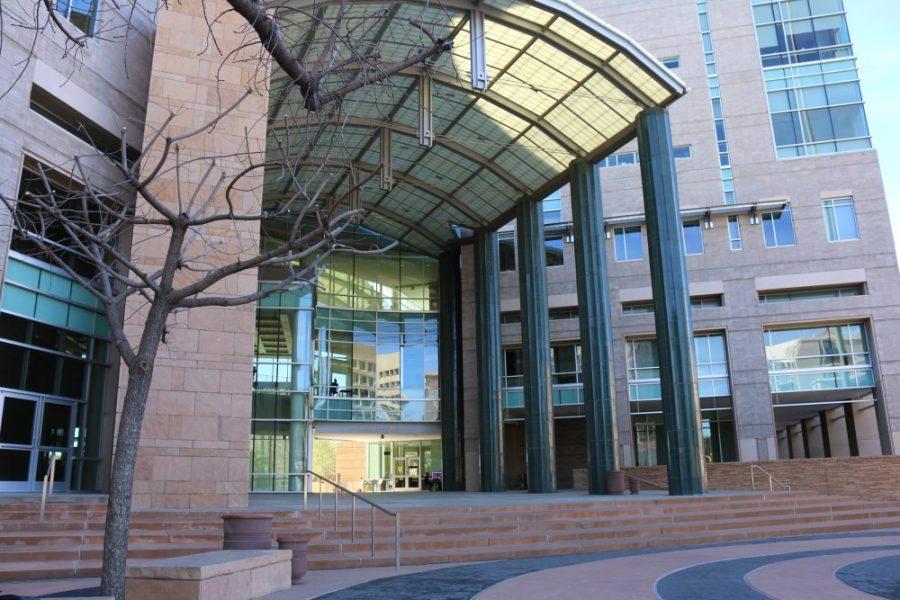Operation Streamline proceedings, the fast-tracked sentencing of defendants largely accused of reentering the United States illegally, takes place every Monday through Friday at 1:30 p.m. in the United States District Court of Tucson. This building is located within walking distance of the UA. Inside these walls, groups of up to seventy immigrants file in for trial. Bound at the wrists and ankles, these men and women stand before the court.
This process proceeds mechanically. The judge asks defendants if they understand the charges, to which the general answer is yes; each person has been informed of the charges in a brief meeting with a lawyer typically assigned to four other people in their group. Many of the individuals who appear before the court have compelling, heartbreaking backstories, yet these stories are not presented for the judge.
“People are arraigned, found guilty and sentenced all in a procedure that takes less than two hours,” said Judith Greene, a criminal justice policy expert, author and director of the non-profit research organization Who We Are.
Individuals move through the court process quickly to conserve time and space, and are generally sentenced to 30 days, with the maximum sentence being 180. When the proceedings end, the men and women are filed out under the careful eye of courtroom security. When asked about these procedures, the U.S. district judge on the case declined to comment.
RELATED: Definitions of humanity: Pouye Khoshkoo describes life after Trump’s immigration ban
Operation Streamline may expand under President Donald Trump’s administration. Attorney General Jeff Sessions was approved by the Senate on Feb. 8 and is expected to head these immigration reform efforts.
The zero tolerance policies that Sessions has pushed, such as Operation Streamline, are meant to deter immigrants from making multiple attempts to cross illegally. They are also designed to make the criminal justice system more efficient.
Controversy over this process rests in the fact that the system is sentencing the accused by the masses, rather than trying them individually or releasing them shortly after arrival.
“Our immigration system is entirely broken—it is a complete waste of money and causes human misery” Greene said. “It can take 20 years to gain legal entry.”
Operation Streamline is meant to limit repeated crossings, but Greene suggests the reasons to keep trying may be much more compelling than fear of repercussion.
“People are fleeing poverty, they are looking to make some money to support their families or they are the subject of very violent circumstances,” she said.
Since the conception of Operation Streamline in 2005, illegal re-entry has been the most-commonly filed federal charge. Proponents argue that bringing in large clusters of people at once is meant to expedite the process. Matthew Lowen, Associate Program Director of the American Friends Service Committee’s (AFSC) Arizona office, described this mechanized process,
stating, “It is a consequence delivery system.”
Lowen works to change policy on a variety of issues from prison privatization to immigrant criminalization. He sees the new administrations building upon this program to make it more prevalent.
“Our concern is of course that there is going to be a push to broaden the net of operation streamline and increase criminal prosecution with immigrants,” Lowen said.
Members of the public are permitted to observe this process firsthand in the pews of the courtroom. On their way in, lawyers often greet regular guests.
“Seeing that in person, I think, is a really moving process; I have yet to take anyone there who has not walked away completely horrified about what is happening everyday in downtown Tucson,” Lowell said.
Firmly against current immigration policies, Lowell spoke to the informative nature of witnessing it firsthand rather than having to sift through mixed information. “You don’t need to have any talking points really, it’s just pretty obvious that this sucks.”
Lowell recognizes that major efforts directed at policy change are vital. However, small attempts at gaining awareness like going to the courthouse can also be highly impactful.
“That is a really amazing first step, in my mind,” Lowell said.
Some UA students have already accepted this call to action, attending a few of the recent gatherings held in Tucson. UA Freshman Tatumn Zale, BFA in musical theater, has taken notice, attending her first rally on Jan. 31. At this rally, she proudly displayed a sign reading “Immigrant” with an arrow pointing towards herself.
“I was driven to this specific rally since I’m only 19, this is the first election where I feel as though I have a firm grasp and understanding of the policies the president is implementing,” Zale said.
She recognizes an apathy towards politics in her peers, many of them voting with their parents or dismissing their relevance. In response, she urges her peers to get involved in politics. “Watch the debates, keep up to date on new legislation being passed and most of all, why America is so wonderful; if you don’t enjoy something a politician said, call your representative,” she said.
In the face of brutal political discourse, Zale remains hopeful about political change. “The mass amounts of protests and marches in the past months will be documented in history books,” she said.
Follow Kelley Dorney on Twitter.








